Showing 1-10 of 25 results
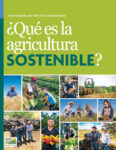
¿Qué es la Agricultura Sostenible?
Una forma sencilla de pensar en la agricultura sostenible es que implica producir suficientes alimentos y fibra para satisfacer las necesidades actuales sin comprometer la capacidad de las generaciones futuras para hacer lo mismo. Los agricultores y ganaderos que valoran la sostenibilidad adoptan tres objetivos comunes mientras llevando a cabo operaciones productivas: Para lograr estos […]

Farm Education for the Deaf Community—Introduction (American Sign Language)
In this video, Monu introduces the video series created to provide farm education to the deaf community. The series is available in both in American Sign Language and Nepali Sign Language.

Racial Equity in Extension webinar series
Recordings of six live webinars with panel discussions on topics geared toward a professional Extension or technical service provider audience in the U.S. (with focus on California). Topics range from 1) building relationships with farmworkers and farmers of color as Extension clientele, to 2) the world views and perspectives on sustainable agriculture of indigenous and […]

Grazing Networks for Livestock Producers
Grazing networks promote a mutual self-help approach to learning that is based on shared local experience and that provides several benefits to participants. This publication offers suggestions for finding or starting a grazing network and provides examples of the kinds of activities grazing networks might conduct. It also contains recommendations for sustaining a grazing network […]
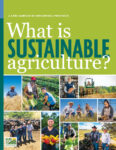
What is Sustainable Agriculture?
This award-winning report provides a sampler of best practices in sustainable agriculture—from marketing and community vitality to cover crops and grazing—as well as eight profiles of producers, educators and researchers who have successfully implemented them.
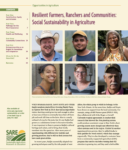
Resilient Farmers, Ranchers and Communities: Social Sustainability in Agriculture
When Nfamara Badjie, Dawn Hoyte and other family members started Ever-Growing Family Farm in Upstate New York in 2014, they had an improbable vision: that they could grow rice well enough to allow at least one of them to eventually leave their off-farm job and work full time on the farm. Rice is a nearly […]
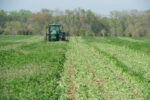
Managing Stress
Farming and ranching are stressful businesses. One key metric of a farm's sustainability is its capacity to provide a quality of life that meets one of our most basic human needs - good mental health. This page highlights successful SARE-funded projects that are using innovative strategies to help farmers and ranchers manage stress. If you […]
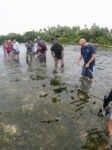
Understanding and Measuring Social Sustainability
This SARE brief defines social sustainability and illustrates how it can be addressed more clearly in SARE projects. Sample projects and quality of life indicators are provided to help grant-seekers and reviewers think broadly about understanding, measuring and describing the social impacts of research and education projects.

Building a Local Food Movement
Over the last few decades, agriculture in western North Carolina has transformed from a reliance on tobacco to a diversified, self-sustaining industry intertwined with local communities and economies. In this video, learn how one organization has worked alongside local farmers and communities to support this transformation.
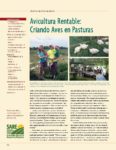
Avicultura Rentable
Avicultura Rentable: Criando Aves en Pasturas es una guía que incluye experiencias de agricultores y lo último en investigación para criar pollos y pavos usando corrales, cercos portátiles y pasturas.